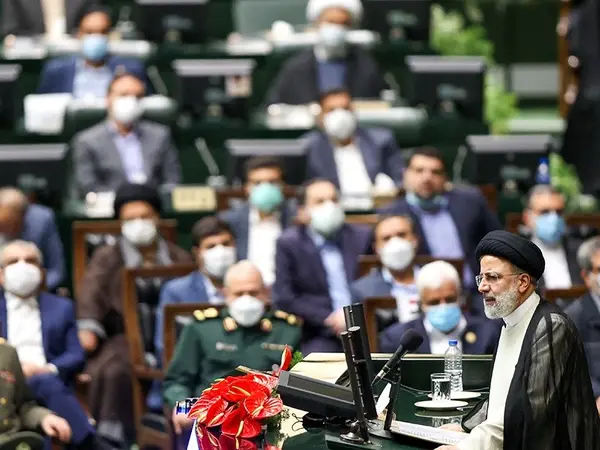An article in Tehran media says even if the nationwide protests had not occurred, the government of President Ebrahim Raisi would have faced serious problems.
The article by journalist Davoud Heshmati in Shargh said Raisi was too optimistic toward the loose coalition among conservative groups that formed his government and took over the parliament. In fact, popular protests may have delayed the activation of fault-lines within the government and preserved its unity. "The coalition was too fragile," Heshmati wrote.
"Despite the delay, in its emergence, the political deadlock is quite visible. The government is incapable of making decisions and this makes next year's developments interesting," he said.
According to the author, "the Iranian society is alive, but Iranian politics is in coma." The Iranian society is anything but "indifferent." Everyone thought the youth were apolitical, but they managed to create a great movement in the streets even without a leadership and organization. What brought them together was the demands for freedom in choosing their lifestyle.
The protests that erupted last September after the death of a young woman in police custody over her ‘inadequate hijab’, was led by teenagers and young people, especially women.
Another issue Heshmati pointed out was that the Iranians had already lost hope in elections after former president Hassan Rouhani refused to or was unable to address the issue of democracy and representation and instead dedicated his efforts to resolving the nuclear issue with the West, only to be blocked by hardliners.
Heshmati wrote that part of the reason hardliners took over the parliament in 2020 and the presidency in 2021, was the people's disillusionment about the possibility of change and reform after eight years of a centrist president. The majority simply did not turn out to vote, giving hardliners the victory.
As a result, Heshmati argued, political action that should have happened during elections spilled to the streets where activists with little or no political background took the lead. Now, they have returned to their homes, tired and battered. The government in Iran is adamant not to recognize their movement and the opposition outside the country can only radicalize the movement and work hard to advocate the demand for regime change.
This has led to a situation in which the society is in an unpleasant political state and the government has lost its capacity to handle the economic crisis because of the impact of the protests and rivalries that are tearing apart the political system.
As a way out of this situation, Heshmati suggested that the regime needs to restore the people's trust in the political system by attaching importance to the ballot box in the parliamentary elections in 2024 and by encouraging everyone to take part by promising representation and allowing political parties to become active.
Meanwhile, both the protesters who took to the streets for months and politicians in Iran maintain that"Iranians no longer believe in the reformist-conservative dichotomy," and they are unlikely to settle for stage-managed elections that would bring the same old useless politicians to the parliament.
In the absence of rigorous street protests, people who chant slogans from their rooftops or out of their windows every night make it known that their demands are beyond what reformists and conservatives tolerated by the regime can claim to meet.
Meanwhile, like many other politicians and analysts during the past months, an article in Donya-e Eqtesad (Economic World) pointed out that Iran's domestic problems are unlikely to be solved without addressing key foreign policy issues most markedly the nuclear issue.
